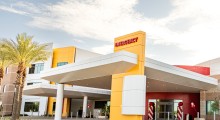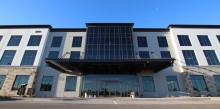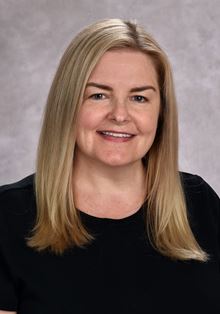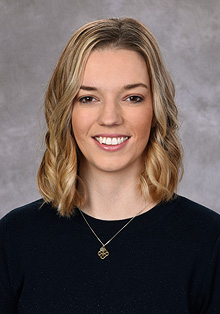1971-1980 of 2958 Results Found
CME Session
NSGR - Neuropsychological Functioning in Children - Aimee Hammer, PhD
Presenter: Aimee Hammer, PhD Neuropsychologist Barrow Neurological Institute at Phoenix Children’s Learning Objectives: Describe common types of craniosynostosis. Discuss the neurodevelopmental outcomes of syndromic and non-syndromic craniosynostosis in children. Describe
CME Session
NSGR - The Phoenix Children's Deep Brain Stimulation Program - Michael Kruer, MD
Children’s Neuroscience Grand Rounds Presenter: Michael Kruer, MD Barrow Neurological Institute at Phoenix Children's University of Arizona College of Medicine – Phoenix Learning Objectives: Recognize the expanding indications for pediatric DBS Identify appropriate referral
Location
Phoenix Children's Emergency Department - Avondale Campus
1665 N. Avondale Blvd.
Avondale, AZ 85392

Location
Phoenix Children's Specialty Care - East Valley - Suite 112
3370 S. Mercy Rd.
Suite 112
Gilbert, AZ 85297

CME Session
PCH - Oncology for the General Pediatrician Part 1 - Drs. Michael Henry, Jennifer Hess, Alexandria Walsh
Speaker panel: Dr. Michael Henry - Lymphoma Dr. Jennifer Hess - Leukemia Dr. Alexandria Walsh - Survivorship Objective: To increase awareness among general pediatricians about childhood cancer.


Condition
Signs of Pregnancy/The Pregnancy Test What are the signs of pregnancy? The signs of pregnancy vary from woman to woman. Usually, the most obvious sign is when a woman has a missed period. But some women continue to have bleeding even while pregnant. The following are the most
CME Session
PCH - Update on the Imaging of Child Abuse - Drs. Lisa Kirsch, John Curran, & Cory Pfeifer
This recording will not be available until early November At the end of this presentation, participants should be able to: Understand the concept of Sentinel Injuries in Child Physical Abuse and be familiar with how to recognize them. Know how to use the Ten 4 FACES-P Bruising
Condition
Health Risks of Not Being Physically Active Not being physically active is a risk factor for health problems. If you aren't physically active, you are at higher risk for: Cardiovascular disease High blood pressure Type 2 diabetes Anxiety and depression Some kinds of cancer Facts
